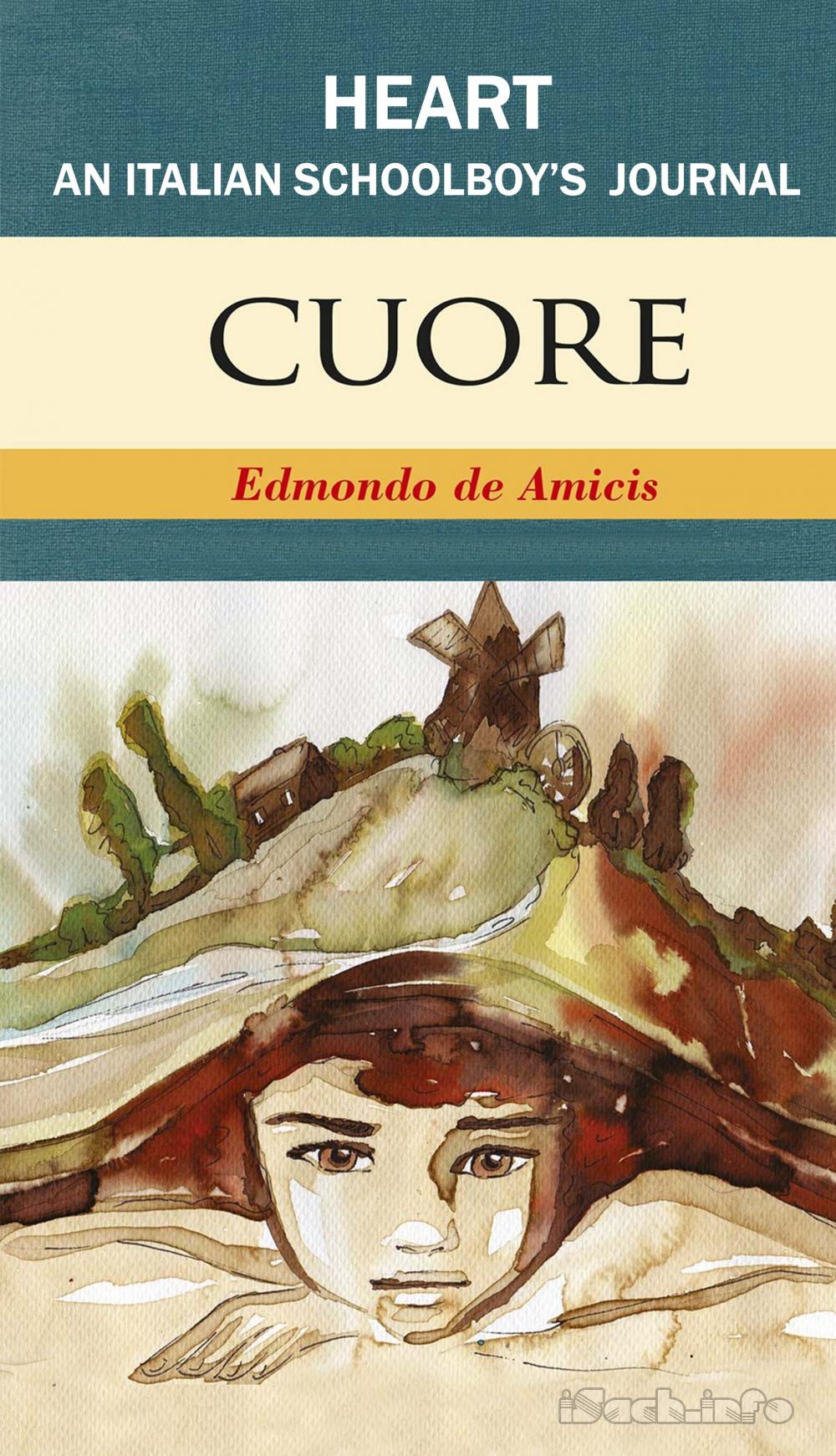Chapter 52: The Workshop
S
aturday, 18th.Precossi came last night to remind me that I was to go and see his workshop, which is down the street, and this morning when I went out with my father, I got him to take me there for a moment. As we approached the shop, Garoffi issued from it on a run, with a package in his hand, and making his big cloak, with which he covers up his merchandise, flutter. Ah! now I know where he goes to pilfer iron filings, which he sells for old papers, that barterer of a Garoffi! When we arrived in front of the door, we saw Precossi seated on a little pile of bricks, engaged in studying his lesson, with his book resting on his knees. He rose quickly and invited us to enter. It was a large apartment, full of coal-dust, bristling with hammers, pincers, bars, and old iron of every description; and in one corner burned a fire in a small furnace, where puffed a pair of bellows worked by a boy. Precossi, the father, was standing near the anvil, and a young man was holding a bar of iron in the fire.
“Ah! here he is,” said the smith, as soon as he caught sight of us, and he lifted his cap, “the nice boy who gives away railway trains! He has come to see me work a little, has he not? I shall be at your service in a moment.” And as he said it, he smiled; and he no longer had the ferocious face, the malevolent eyes of former days. The young man handed him a long bar of iron heated red-hot on one end, and the smith placed it on the anvil. He was making one of those curved bars for the rail of terrace balustrades. He raised a large hammer and began to beat it, pushing the heated part now here, now there, between one point of the anvil and the middle, and turning it about in various ways; and it was a marvel to see how the iron curved beneath the rapid and accurate blows of the hammer, and twisted, and gradually assumed the graceful form of a leaf torn from a flower, like a pipe of dough which he had modelled with his hands. And meanwhile his son watched us with a certain air of pride, as much as to say, “See how my father works!”
“Do you see how it is done, little master?” the blacksmith asked me, when he had finished, holding out the bar, which looked like a bishop’s crosier. Then he laid it aside, and thrust another into the fire.
“That was very well made, indeed,” my father said to him. And he added, “So you are working—eh! You have returned to good habits?”
“Yes, I have returned,” replied the workman, wiping away the perspiration, and reddening a little. “And do you know who has made me return to them?” My father pretended not to understand. “This brave boy,” said the blacksmith, indicating his son with his finger; “that brave boy there, who studied and did honor to his father, while his father rioted, and treated him like a dog. When I saw that medal—Ah! thou little lad of mine, no bigger than a soldo[1] of cheese, come hither, that I may take a good look at thy phiz!”
The boy ran to him instantly; the smith took him and set him directly on the anvil, holding him under the arms, and said to him:—
“Polish off the frontispiece of this big beast of a daddy of yours a little!”
And then Precossi covered his father’s black face with kisses, until he was all black himself.
“That’s as it should be,” said the smith, and he set him on the ground again.
“That really is as it should be, Precossi!” exclaimed my father, delighted. And bidding the smith and his son good day, he led me away. As I was going out, little Precossi said to me, “Excuse me,” and thrust a little packet of nails into my pocket. I invited him to come and view the Carnival from my house.
“You gave him your railway train,” my father said to me in the street; “but if it had been made of gold and filled with pearls, it would still have been but a petty gift to that sainted son, who has reformed his father’s heart.”
-----------------------------------------------------------------------------
[1]The twentieth part of a cubit; Florentine measure.



 ePub
ePub A4
A4